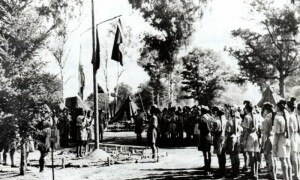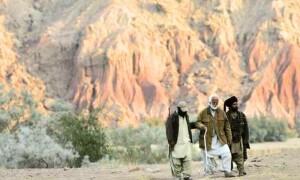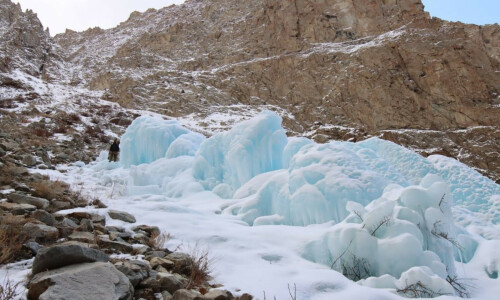QUETTA: Experts and key stakeholders have called for a unified approach to tackle the rising threat of forest fires in Balochistan.
Climate change has increased the risks of forest fires in Balochistan where vast swathes of mountains are covered with valuable pine and olive forests.
The province has seen huge wildfires in the past three years, including the Koh-i-Sulaiman blaze in 2022 which damaged at least a third of the Shirani forest, spread over 26,000 hectares, and home to more than 10.8 million pine trees.
The Balochistan Forest and Wildlife Department and International Water Management Institute (IWMI), Quetta, organised a stakeholders’ workshop titled ‘Enhancing Forest Fire Risk Management and Watershed Resilience in Central Asia and Pakistan’ under a US Forest Service-funded project.
The event brought together government officials and experts who called for advanced technology, community awareness, research and coordinated action to build resilience and safeguard the declining forest resources.
Balochistan Forest and Wildlife Secretary Abdul Fateh Bhanger, IWMI Global Director for Water, Food and Ecosystems Dr Mohsin Hafiz, Chief Conservator Forest (South) Ghulam Muhammad, Chief Conservator Forest (North) Muhammad Aslam Buzdarand other stakeholders.
Mr Bhanger, the Forest and Wildlife Department secretary, said increasing incidents of forest fires in the province required efforts from all stakeholders.
He said the department has proposed forest fire management schemes in the provincial Public Sector Development Program 2025-26 and expressed hope that IWMI would continue supporting forest fire, drought, and flood management initiatives.
Dr Hafiz of IWMI, provided an overview of the project and his organisation’s role in managing natural disasters, including droughts, floods and forest fires.
Experts noted that public and institutional awareness of forest fire risks in the province was limited. They emphasised that while climate factors play a role, many wildfire incidents in Balochistan and Khyber Pakhtunkhwa were driven by human activity, such as lighting cigarettes or leaving campfires unattended.
Published in Dawn, May 7th, 2025









































